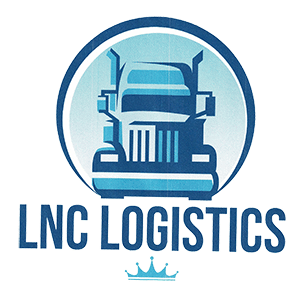Freight shipping is a critical part of business operations, and understanding what factors affect shipping costs can help businesses make informed decisions. Whether you’re shipping locally, regionally, or across North America, many elements contribute to your final freight quote. By knowing these factors in advance, businesses can better control shipping expenses and optimize their logistics strategy.
At LNC Logistics, we specialize in helping businesses secure the best possible freight rates by leveraging our vast carrier network and industry expertise. This guide explores the ten most significant factors that can impact your freight quote and how to manage them effectively.
1. Freight Classification and NMFC Codes
One of the most important aspects of pricing freight is determining the correct freight class. The National Motor Freight Classification (NMFC) system categorizes freight based on four key factors: density, stowability, handling, and liability.
Freight is classified into 18 different classes, ranging from Class 50 (least expensive) to Class 500 (most expensive). The higher the freight class, the more expensive it is to ship.
- Lower-class freight includes dense, durable items such as bricks or steel.
- Higher-class freight includes lightweight or fragile items, such as furniture or electronics.
Misclassifying freight can result in rate adjustments and unexpected charges. Ensuring accurate freight classification can prevent reclassification fees and help secure the most competitive pricing.
2. Freight Weight and Dimensions
Weight and dimensions play a major role in determining freight costs. Carriers use weight-based pricing structures, and the heavier the shipment, the higher the cost. However, weight is only part of the equation—dimensional weight (or volume-based pricing) can also impact costs.
If a shipment is large but lightweight, carriers may apply a dimensional weight charge, meaning they calculate pricing based on the amount of space it occupies rather than just its actual weight. To avoid additional fees:
- Provide accurate weight and dimensions when requesting a quote.
- Use appropriately sized pallets or crates to reduce excess space.
- Stack and pack shipments efficiently to maximize load capacity.
3. Distance and Shipping Zones
The further a shipment travels, the more expensive it will be. Freight rates are based on transportation lanes, and pricing is often determined by the distance between pickup and delivery points.
Freight shipments are categorized into shipping zones, which determine the pricing structure:
- Short-haul routes (within a single state or region) tend to be less expensive.
- Long-haul routes (cross-country or across multiple states) increase costs due to fuel, labor, and toll expenses.
To control shipping costs, businesses can consider consolidating shipments or choosing regional carriers that offer lower rates for local deliveries.
4. Mode of Transport (LTL vs. FTL vs. Expedited)
The method of transport significantly impacts freight costs. The three most common shipping methods are:
- Less-than-truckload (LTL): Cost-effective for smaller shipments that do not require a full truck. However, LTL rates can vary based on how much space is needed, additional handling requirements, and route efficiency.
- Full truckload (FTL): Generally more cost-efficient for large shipments that fill an entire truck. FTL shipments move directly from pickup to delivery without additional stops.
- Expedited freight: Premium pricing applies to shipments requiring fast delivery or same-day/overnight service.
Selecting the most appropriate shipping mode for your needs can help control costs while ensuring on-time deliveries.
5. Freight Density and Packaging
Freight density—calculated as weight per cubic foot—affects pricing because carriers charge based on space utilization. High-density shipments are typically less expensive to ship than low-density freight.
Proper packaging also plays a role in cost management. Poorly packed freight can result in:
- Additional fees for repackaging or oversized items.
- Damaged goods requiring replacement or claims processing.
- Inefficient space usage, increasing total shipping costs.
Businesses should package shipments efficiently using pallets, shrink wrap, and reinforced containers to maximize protection and minimize excess space.
6. Accessorial Charges and Special Handling
Accessorial fees are additional charges applied for special services beyond standard pickup and delivery. These fees can significantly increase shipping costs. Common accessorial charges include:
- Liftgate service: Required if the receiving location lacks a dock for unloading.
- Residential delivery: Extra charges apply for deliveries to non-commercial addresses.
- Inside delivery: If a shipment needs to be carried inside a building instead of curbside delivery.
- Limited access locations: Deliveries to military bases, schools, construction sites, or remote areas incur higher fees.
Understanding and anticipating these charges when obtaining a freight quote can help businesses budget more accurately.
7. Seasonal Demand and Market Conditions
Freight rates fluctuate based on supply and demand. During peak shipping seasons—such as holidays, back-to-school periods, and harvest seasons—demand for freight capacity rises, leading to higher shipping costs.
Other market conditions that impact freight pricing include:
- Fuel prices: When fuel costs rise, surcharges are added to freight rates.
- Truck capacity shortages: When there are fewer available trucks, carriers charge higher rates.
- Weather-related disruptions: Storms, road closures, and natural disasters can delay shipments and increase costs.
Booking freight in advance, adjusting shipping schedules to off-peak times, and working with a freight brokerage can help businesses secure better pricing.
8. Carrier Selection and Availability
Carriers set their own pricing based on capacity, demand, and service level. The more reliable and in-demand a carrier is, the higher their rates may be.
Businesses that have flexibility in their carrier selection can often secure lower rates. A freight broker, like LNC Logistics, works with multiple carriers to compare pricing and match shipments with the best available rates.
Additionally, working with a broker ensures businesses can:
- Access a broader network of carriers to avoid capacity shortages.
- Negotiate better rates through volume-based discounts.
- Ensure service reliability by choosing carriers with strong track records.
9. Freight Insurance and Liability Coverage
Standard carrier liability coverage may not fully protect high-value shipments, and purchasing additional freight insurance increases the overall cost of shipping. However, failing to secure proper coverage can lead to substantial financial losses if goods are lost or damaged in transit.
Factors affecting insurance costs include:
- Value of the goods being shipped.
- Fragility or risk level of the freight.
- Distance and route conditions.
Shippers should evaluate their coverage needs to ensure they have the right level of protection while balancing insurance costs against potential risks.
10. Fuel Surcharges and Tariffs
Fuel prices fluctuate daily, and carriers adjust their pricing accordingly. Many carriers apply fuel surcharges as a percentage of the base freight rate, which can significantly impact the total shipping cost.
Additionally, shipments crossing international borders may be subject to customs fees, tariffs, and import/export duties. Understanding these charges in advance helps businesses budget appropriately and avoid unexpected expenses.
To minimize the impact of fuel surcharges and tariffs, businesses can:
- Optimize shipping routes to reduce mileage and fuel consumption.
- Work with freight brokers who negotiate fuel surcharge reductions with carriers.
- Plan for customs fees when shipping cross-border freight.
How Freight Brokers Help Businesses Navigate Cost Fluctuations
Freight costs are not static—they fluctuate due to economic trends, fuel prices, capacity shortages, and seasonal shipping surges. For businesses managing shipping independently, these changes can lead to unpredictable expenses that strain budgets and disrupt supply chains. Freight brokers help businesses stabilize shipping costs by leveraging industry insights, strategic carrier partnerships, and cost-management techniques.
One way brokers mitigate cost fluctuations is by securing contracted rates with carriers. Instead of businesses dealing with volatile spot market pricing, brokers negotiate long-term agreements that offer consistent and predictable freight costs. This approach helps businesses avoid price spikes during high-demand periods.
Brokers also monitor market conditions and industry trends to adjust shipping strategies in real time. By proactively planning shipments around fuel price changes, truck capacity availability, and regional demand shifts, they help businesses avoid unnecessary expenses. Additionally, they provide businesses with alternative routing and mode optimization strategies, ensuring that companies can pivot when costs rise unexpectedly.
By working with a freight brokerage, businesses gain access to pricing stability, strategic shipping insights, and cost-controlling measures that would be difficult to achieve independently. This ensures businesses can maintain affordable and efficient freight operations, even in fluctuating market conditions.
Conclusion
Understanding the factors that influence freight quotes allows businesses to make informed shipping decisions and control costs. Everything from freight classification and weight to fuel surcharges and seasonal demand plays a role in determining the final price.
By working with LNC Logistics, businesses can navigate these complexities and secure competitive freight rates while ensuring efficient and reliable shipping solutions. Our team helps businesses optimize logistics, negotiate better pricing, and manage the freight process from start to finish.
For an accurate and affordable freight quote, contact LNC Logistics today and discover how we can help your business save money and streamline shipping operations.
LNC Logistics
507 N Sam Houston Pkwy E Suite 202
Houston, TX 77060
Phone: (832) 777-1789
View our Google Business Listing
View our Facebook Page



